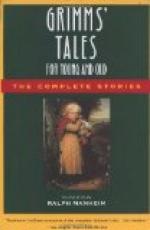One other person formed part of the family, without being connected with it by relationship—a woman who seemed at first sight to have reached her seventieth year, so slow and difficult were her movements. Her words savoured a little of obscurity, and her countenance was rather repulsive. She was a Milanese. Having come to the baths in Padua, she had taken lodgings in Cadori’s house. She seldom spoke, and paid no attention to what was passing around her. She always seemed unconscious of the loud and angry language of Cadori, which was proving fatal to the neglected wife and the oppressed daughter. She appeared to love no one; no one loved her. However, as she paid largely for her apartments, Cadori did everything to keep her in his house.
Though Sophia led a melancholy life, it was much relieved by the exercise of her accomplishments, which were numerous. No female in Padua, for instance, could compare with her in the art of flower-making. Her friends contended for the pleasure of adorning themselves with one of these flowers; courteous and kind to all, she distributed some to each. Even the mercers of the city, when they had need of flowers of superior beauty, applied to Sophia, who willingly acceded to their requests.
The two days of delay to Edoardo’s departure were past, and in those two days the Signora Cadori had had a new and very violent attack, which placed her life in danger. Edoardo came to take leave of the family. When alone, the conversation, the adieus of the lovers, were not long; they both wept, looked at each other, and were silent. Yet how many things had they to say to each other, how many promises to renew, how many hopes and fears to exchange!
They parted; Edoardo pleased with himself, and Sophia dissatisfied with him and herself, without knowing why.
The heart is a true prophet: the fears of Sophia were about being realised; the days of her mother were drawing to a close. Sophia, sad and terrified, was never absent from her bedside. Her heart, her heart alone, sometimes wandered after the footsteps of another beloved, but less unhappy being. Forgive that thought of love to the maiden; call it not a sin. Sixteen! a soul so tender! the first love! The maternal eye saw into the inmost heart of the daughter, and felt no jealousy at those thoughts flying to her distant love. In those moments she silenced her own wants, lest she should disturb her in her reveries, and humbly prayed for the happiness of her child. Sophia, on recollecting herself, would testify the greatest sorrow, ask pardon of her dear invalid, and redouble her attention. Neither day nor night was she away from the pillow of her dying mother. Her strength supported her, as if by a miracle. No one divided with her this pious office, except the Countess Galeazzi, the mysterious guest of that house, and she came but seldom to the chamber of suffering.




